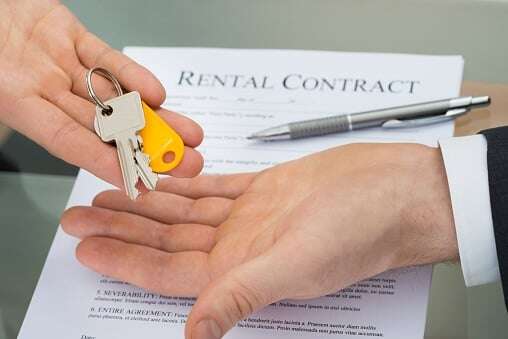 How many times have you been at an HOA board meeting and heard, "it's the renters who don't follow the HOA rules" or "our homeowner's association assessments are increasing because the renters don't care about our building and following the rules!"
How many times have you been at an HOA board meeting and heard, "it's the renters who don't follow the HOA rules" or "our homeowner's association assessments are increasing because the renters don't care about our building and following the rules!"
Approximately 4 in 10 homes in suburban America are occupied by renters. If your unit is one of those homes—or about to become one—here are a few tips that will help you and your renters live harmoniously under the HOA Rules.
Check the Documents
Make sure you comply with the governing documents—the rules and regulations, bylaws and CC&Rs. They may contain special requirements for non-resident owners who lease their units. Also, make sure your renters have a copy and understand the rules,
Inform Prospective Tenants on HOA Rules
Be sure to educate prospective renters about the special considerations of living in a homeowners association before they sign a lease, otherwise you may be held responsible for any violations. The Association will be happy to give you a copy of the rules to pass along.
Use a Lease Addendum
No doubt you’ll have your renters sign a lease, so consider attaching an addendum to your lease that covers the rules and regulations and require renters to adhere to the HOA rules. This is very important because it gives you and the Association a means of enforcement. A good lease or lease addendum should support the community by:
- Requiring the tenant to obey the bylaws, rules, and regulations of the association. (Attach copies!)
- Requiring the tenant to pay fines for HOA rule violations.
- Requiring the tenant to vacate if the rules and regulations are repeatedly violated.
Keep the Homeowner's Association Informed
Once the lease is signed, give a copy to the manager or an HOA board member. Associations usually have a clear policy for renters. The more information you provide about your renters, the more successful they will be in your community. The following information should be provided to the Association:
- Renter’s name (and children or roommates) and phone number.
- Renter’s email address, employer, or other pertinent details.
- Renter’s vehicle description and license plate numbers for parking information.
- The number and type of pets, if any.
- Your forwarding address and phone numbers.
Encourage Tenants to Participate in the Association
Be an advocate for your tenants with the Association. Make sure they have access to the recreational and parking areas and that they have the keys and passes they need. Also provide them with the name and phone number of your HOA manager.
Talk to the HOA Manager
The HOA manager can give you important information about what the Association requires of owners laws for renters and tips about the rental process that will be very helpful, especially if you’re leasing for the first time. They can also be the first point of contact for you renters, and can act as a neutral contact between you and your renters.
Even though tenants have no vote on homeowner's association matters, they are an important part of the community. Make them feel welcome, provide information that will familiarize them with the Association, and encourage them to participate in community activities whenever possible. Today’s renters may be tomorrow’s owners—or even HOA board members. The more we all do to promote a sense of belonging for renters, the more positive and successful the leasing experience will be for everyone.

.jpg)








